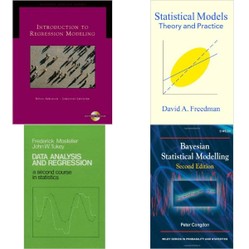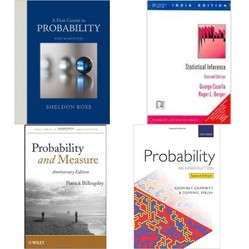Linear regression is a data-analysis technique and way of modelling data to assess the relationship between two variables. It is immensely useful and can be surprisingly fun!
Here I give personal reviews of books I worked with, mostly during my time studying for my master's degree in statistics from Yale University. I also have experience tutoring and teaching math, and working as a statistical consultant, and working in operations research.
I am sharing these reviews both for teachers and student, and for career statisticians or people using statistics in their work as well.
In addition to basic introductory texts at varying levels, I also include a more advanced book which covers Bayesian regression. This page is organized roughly in order of difficulty, with the more accessible books listed first. I have been highly selective of what books I include here, only reviewing books I find to be the best of the best in the subject of regression.














 The Shaming of Femininity and Elevation of Masculinityon 07/13/2017
The Shaming of Femininity and Elevation of Masculinityon 07/13/2017
 What is Genderqueer or Non-Binary Gender?on 10/16/2015
What is Genderqueer or Non-Binary Gender?on 10/16/2015
 Resources for Learning Spanish Free Onlineon 04/13/2016
Resources for Learning Spanish Free Onlineon 04/13/2016
 Ways Native Plants Can Help Control Invasive Plantson 05/26/2016
Ways Native Plants Can Help Control Invasive Plantson 05/26/2016



Questions? Comments? Feedback?